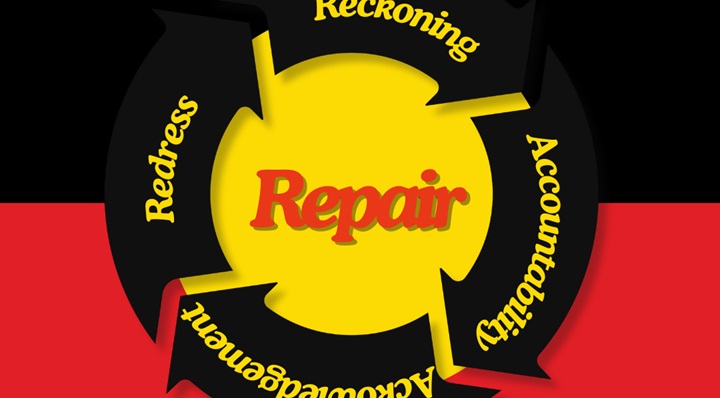Reconciliation Week, observed annually from 27 May to 3 June in Australia, promotes understanding, accountability, and repair between Aboriginal and Torres Strait Islander peoples and the broader Australian community. This year’s theme, “Now more than ever,” underscores the urgency of this cause. The week commemorates two key events: the 1967 referendum to include First Peoples in the census and the High Court Mabo decision recognising their continuous connection to Country.
Since the arrival of the first boats, First Nations peoples have been fighting for their land back. Dispossession of lands has been central to their oppression, causing damage to Country, kinship, culture, education, and language systems. Colonial structures were designed to support the economic exploitation of the land, opportunities that have contributed to making Australia one of the wealthiest nations worldwide. Yet, First Nations people remain among the world’s most disadvantaged. However, Indigenous businesses are beginning to turn the tide, and your business can engage in this sector to demonstrate your allyship.
In 1988, Dr Yunupingu and Wenten Rubuntja presented the Barunga Statement to Prime Minister Hawke, calling for a treaty. The Hawke government promised a treaty by 1990 but replaced treaty discussions with the concept of reconciliation, a promise unfulfilled. The Council for Aboriginal Reconciliation (CAR) was established in 1991 to promote reconciliation. However, starting in 1996, the Howard government abolished key Aboriginal organisations, defunded others, and instigated the Northern Territory intervention. Prime Minister Howard refused to apologise to First Nations in Parliament. In 2008, Prime Minister Rudd delivered the ‘Sorry Speech’ in Parliament, which, though significant, fell short of the three steps of an apology: recognition, remorse, and repair. Most recently, the Uluru Statement called for a “First Nations Voice enshrined in the Constitution” and a “Makarrata Commission” for agreement-making and truth-telling.
Genuine reconciliation involves providing ways to build relational integrity, represented by the following four building blocks of repair:
1. Reckoning
Learning about past and ongoing harm by:
- Education: Formal and informal learning.
- Truth-telling: Respectful listening.
- Leadership: Speaking up and taking action.
- Self-reflection: Recognising one’s privilege and position.
2. Acknowledgement
Admitting that harm has occurred and continues by:
- Public acknowledgment, apology, and recognition.
3. Accountability
Taking responsibility for past harm and committing to non-repetition by:
- Supporting self-determination and funding initiatives related to land, language, kinship, food, housing, and water.
- Building community assets and infrastructure.
4. Redress/restitution
Using resources for healing, ensuring racial justice for First Nations by:
- Sharing wealth to support justice and equity.
- Amplifying and uplifting First Nations-led justice and healing projects.
Strengthening the Indigenous business sector requires place-based gatherings to expand relationships at the local level. This involves bringing together local communities and exploring the connections between our businesses, the community, and our personal lives. There is a collective pride generated by taking action and seeing each other make a difference through our business ventures. A rich tapestry of connections, information, ideas, and feelings is woven each time we collaborate.
The 2024 Indigenous Business Snapshot from the Dilun Duwa Centre at Melbourne University states, “The contribution of Indigenous businesses is not just the monetary amount – there is also the story of Indigenous self-determination through the vehicle of business, the local benefits of businesses especially in regional Australia such as employment and contribution to infrastructure, and the sharing of cultural knowledge which is crucial to the world’s oldest continuing culture.”
The centre Director Associate Professor Michelle Evans goes on to say, “A large percentage of these businesses – 56 per cent of sole traders and 78 per cent of partnerships – are in rural and remote communities. This is important because it is evidence of Indigenous people using business to provide employment opportunities for themselves and their communities whilst remaining connected to Country.”
How can you get involved?
Your business can support Reconciliation Week by showing cultural appreciation and community reciprocity in the following ways:
- Partnering with a First Nations charity.
- Adjusting your supply chain: set a target for including Indigenous business suppliers.
- Increasing collaboration with First Nations businesses.
- Including a workforce strategy.
- Becoming a mentor: providing key development opportunities for First Nations entrepreneurs.










